
“Your Dog And Cat Do Not ‘Love’ You”: Person Attempts To ‘Debunk Myth’ On The Nature Of Pet-Owner Relationships, Gets Slammed Heavily In Return
In the middle of the last decade, we were dismayed to learn that our pets were doing everything in our absence and getting up to epic adventures around the city (thanks to The Secret Life of Pets cartoon series). Now the debunking of myths goes on, and people are already encroaching on the most sacred – on the belief that our pets actually love us selflessly and disinterestedly.
Wait, so what about the completely authentic and touching stories of Hachiko, Greyfriars Bobby and many other examples of the completely devoted relationship of animals to people? Does it really all come down to instinct, and our pets welcome us home so joyfully just because we feed and water them? Twitter has been debating this issue for days.
The debate instigator tweeted that, according to her, pets aren’t really capable of human emotions
Image credits: PhadkeTai
The author of the initial tweet believes that pets are just food and comfort-motivated and don’t truly love us
It all started with a tweet by Bombay-Beijing-London writer Mithila, who, on her @PhadkeTai account a few days ago, questioned the sincere love of pets for their owners. The whole point, as the author of the original tweet presumes, is that animals aren’t capable of human emotion. Accordingly, the Original Poster (OP) believes, one should not expect manifestations of sincere love from pets.
Mithila states that animals are simply food and comfort-motivated or have been bred to be affectionate. Hence, what we are accustomed to a little selfishly consider love, in fact, is nothing more than a set of reflexes and instincts. And in general, as they say, the psyche is just a plaque on the endocrine glands…
Image credits: LeftAtLondon
Image credits: IwriteOK
However, netizens put forth the opposite viewpoints literally on the spot
However, Twitter is still Twitter, and if the OP was expecting unanimous approval and support for her point of view, then she was definitely wrong. Most netizens opposed the author, arguing that, for example, in this case, a newborn baby cannot love their mother – because, after all, they are “also provided food and comfort, and doesn’t do much else besides react positively to it.”
Image credits: eclecticV
Image credits: abbygov
People in the comments also quite reasonably noted that “love” as such is not an exclusively human privilege – after all, for example, cat and dog brains both release oxytocin when they’re with their owners in a manner similar to children with their mothers. In this case, it would be logical, as some commenters say, to assume that people also do not know how to love.
Image credits: RoyaBacklund
Image credits: Joschwabost
By the way, some participants in the discussion claim so directly – “human beings love for the same exact reasons that dogs and cats do – food, comfort, reproduction, oxytocin.” You know what’s great about Twitter debates? Literally a few replies – and now we have moved from discussing kitties and doggos to a total deconstruction of love as one of the basic human feelings.
Image credits: ClaireAllan
Image credits: 42Reif
Image credits: priya_ebooks
Vets in the comments told several stories of how animals literally refused to eat when left by their owners
And anyway, if we return to the original topic of the discussion, then some commenters who have experience in animal hospitals, for example, give amazing stories of how animals literally refuse to eat out of longing when the owners leave them alone. On the other hand, some people in the comments notice that humanity first spent hundreds and thousands of years accustoming dogs to be completely dependent on them, and then some of its representatives believe that their pets love them simply for what they are.
Image credits: ProfessorPlague
Image credits: DHCalifornicus
There are numerous studies researching animal behavior and their relationships with humans
As you can see, the points of view of the participants of this discussion differ greatly, and the results of numerous studies cannot absolutely confirm the correctness of any of the parties. For example, a recent study conducted by Daniel Mills, a British specialist in clinical animal behavior, found that if dogs do treat their owners in much the same way that small children treat their parents, then cats do not show much of this behavior. Moreover, sometimes cats just ignored their owners and happily greeted strangers.
Image credits: NanciGuestRDPhD
Image credits: crab_rare
This, by the way, is quite reasonable on two grounds. Firstly, dogs have a much longer history of interaction with humans. And if scientists believe that dogs were domesticated about 15K years ago, then cats got (almost) the same treatment about 9.5K thousand years ago. The difference of more than five thousand years is, you see, incredibly significant. Secondly, the life of cats next to humans was more like a mutually beneficial cooperation – after all, they did not lose their hunting skills, exterminating rodents that harmed the household.
Image credits: swamplady100
Image credits: Shaggy_PacMan
Most of the results of these studies claim that either only dogs, or cats as well, experience nearly the same emotions towards owners like human babies expose towards their parents
On the other hand, in 2019 a study was conducted at the Human-Animal Interaction Lab at Oregon State University, the results of which, on the contrary, show that cats form attachments to their owners in ways similar to dogs – and even babies.
“Cats are more independent in the way that we don’t have to train them to use the litter box the same way we have to housebreak a puppy,” says Kristyn Vitale, the lead author of the study, in her interview to Oregon Public Brodacasting. “But that doesn’t necessarily mean they don’t use us as a source of security and that they aren’t affectionate towards people. That’s what we’re finding: The majority of cats do use their owners as a source of security and rely on them for comfort.”
Image credits: qtsuperstar
Image credits: iwantflesh
Image credits: GarryAlways
Image credits: ErsonMcPerson
Perhaps the cunning and prudent cats are simply manipulating these naive scientists, who knows? Be that as it may, most researchers directly say that animals are capable of experiencing emotions similar to human ones, and love is definitely one of these emotions. However, this is no reason not to buy your doggo a treat on the way home, so feel free to please them, and, of course, write what you personally think about all this. Or better yet, tell your own story about your wonderful and loving pets in the comments.
Explore more of these tags
Imagine gatekeeping love as a solely human emotion. I feel sad for this person that they've never experienced the unconditional love of a pet.
Speaking from a purely philosophical point of view, it is impossible to truly know the mind of another. This is more true when taking about an alien mind, like that of another species. Similarly, there's a danger of personification. A dog is not a person. However, it's possible to look at behavior, and state, this behavior presents itself as love. I cannot be 100% confident that it is, but I cannot say that it isn't either. The behavior presents itself like love. Does anything else matter? My dog prefers me to all others in the house. I feed and walk her, and give her lots of affection. I can't prove that it's "love", but nobody can prove it isn't either.
Load More Replies...Why do people want to p**s all over what might be someone's ONLY happy thing?
so she doesn't feel guilty about her next steak.
Load More Replies...This was truly idiotic, she didn't even bother to check the tests that have taken place that shows our animals adore the hell out of us and vice versa. https://www.theguardian.com/lifeandstyle/2019/jul/16/do-our-pets-ever-really-love-us-or-do-they-just-stick-around-for-the-food https://www.theguardian.com/lifeandstyle "To storge, familial love. It won’t surprise you to learn that dogs, more than any other pet, exhibit oodles of this form of love for us. And, unlike most other pets, these attachments have been the subject of many scientific studies. The science confirms what we knew all along, that most dogs actively choose proximity to humans and, within a few months of being born, a puppy’s attraction is clearly toward people rather than other dogs. Dogs exhibit varying degrees of separation anxiety when their humans temporarily leave them. Blood pressure rates in dogs lower when they are being stroked by us. It is a form of storge that we share with one another. No question."
Imagine gatekeeping love as a solely human emotion. I feel sad for this person that they've never experienced the unconditional love of a pet.
Speaking from a purely philosophical point of view, it is impossible to truly know the mind of another. This is more true when taking about an alien mind, like that of another species. Similarly, there's a danger of personification. A dog is not a person. However, it's possible to look at behavior, and state, this behavior presents itself as love. I cannot be 100% confident that it is, but I cannot say that it isn't either. The behavior presents itself like love. Does anything else matter? My dog prefers me to all others in the house. I feed and walk her, and give her lots of affection. I can't prove that it's "love", but nobody can prove it isn't either.
Load More Replies...Why do people want to p**s all over what might be someone's ONLY happy thing?
so she doesn't feel guilty about her next steak.
Load More Replies...This was truly idiotic, she didn't even bother to check the tests that have taken place that shows our animals adore the hell out of us and vice versa. https://www.theguardian.com/lifeandstyle/2019/jul/16/do-our-pets-ever-really-love-us-or-do-they-just-stick-around-for-the-food https://www.theguardian.com/lifeandstyle "To storge, familial love. It won’t surprise you to learn that dogs, more than any other pet, exhibit oodles of this form of love for us. And, unlike most other pets, these attachments have been the subject of many scientific studies. The science confirms what we knew all along, that most dogs actively choose proximity to humans and, within a few months of being born, a puppy’s attraction is clearly toward people rather than other dogs. Dogs exhibit varying degrees of separation anxiety when their humans temporarily leave them. Blood pressure rates in dogs lower when they are being stroked by us. It is a form of storge that we share with one another. No question."

 Dark Mode
Dark Mode 

 No fees, cancel anytime
No fees, cancel anytime 






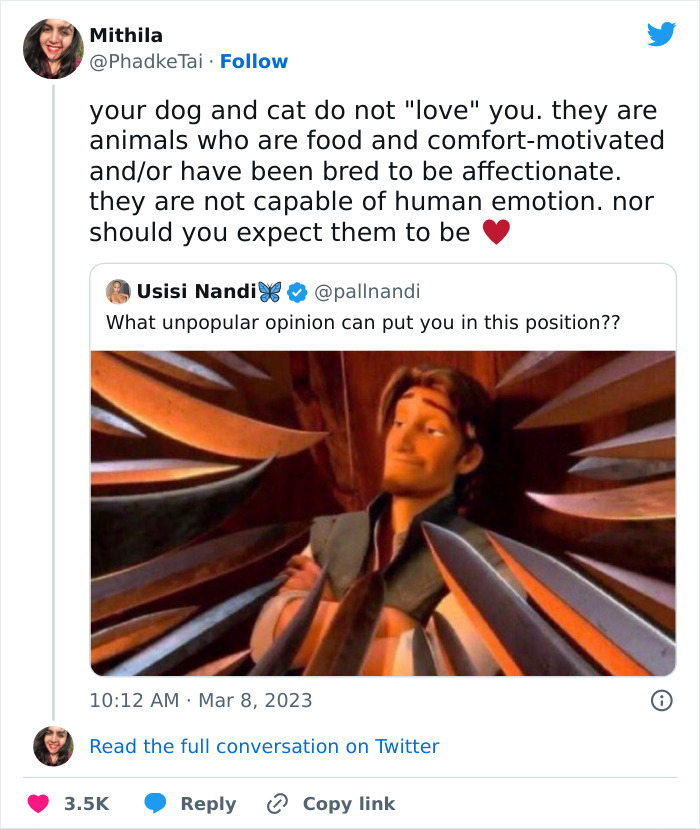
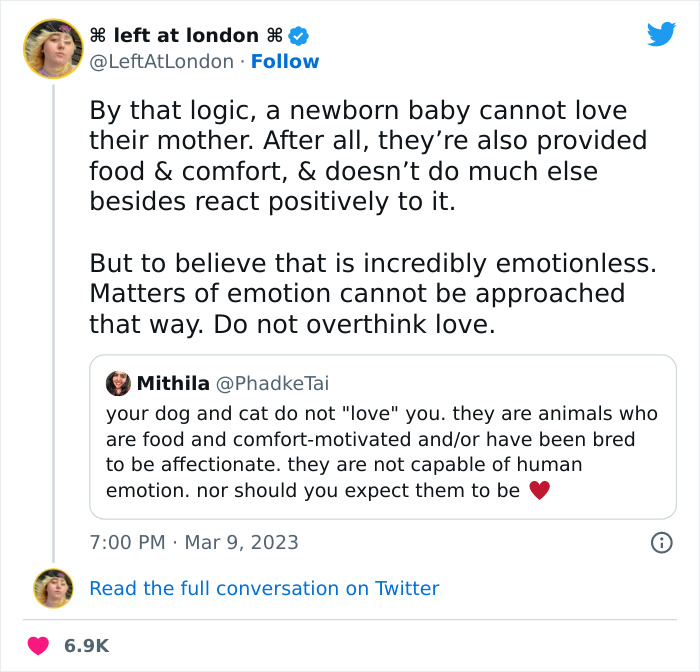
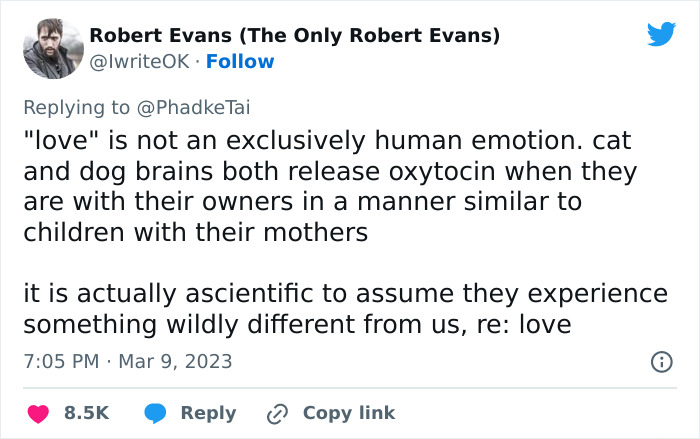
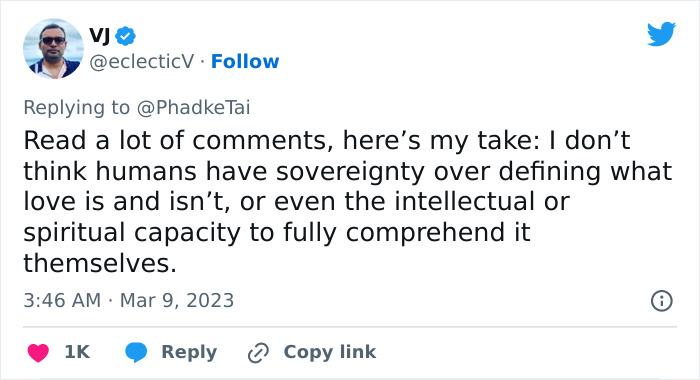
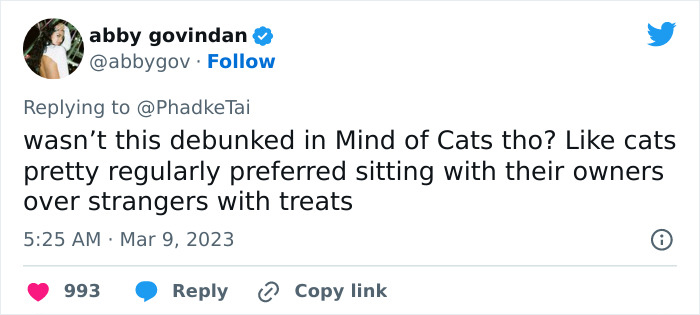
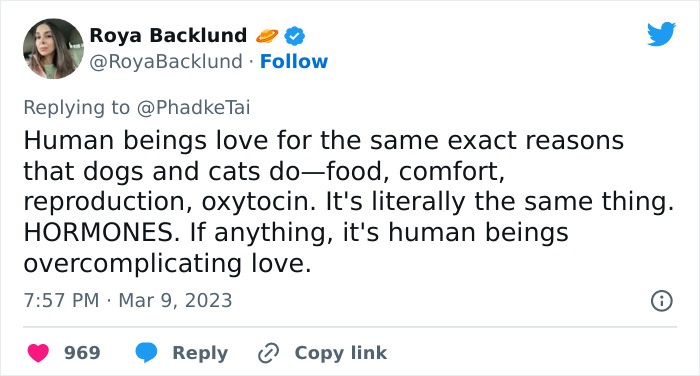
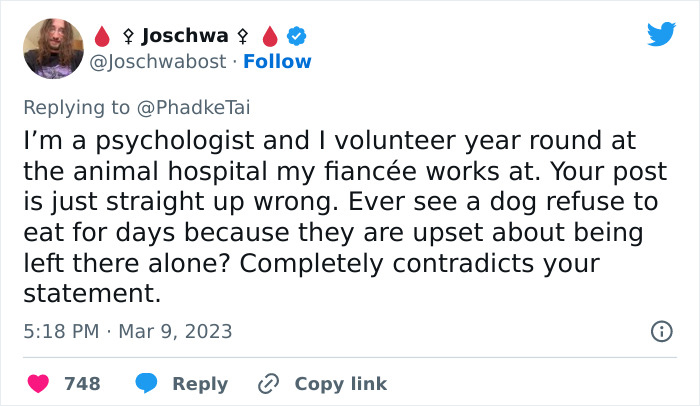
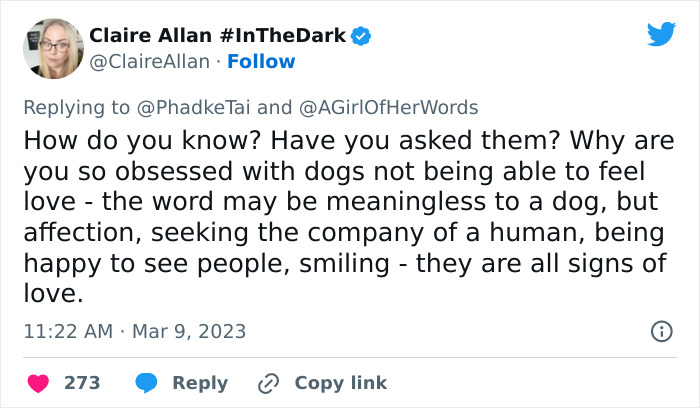
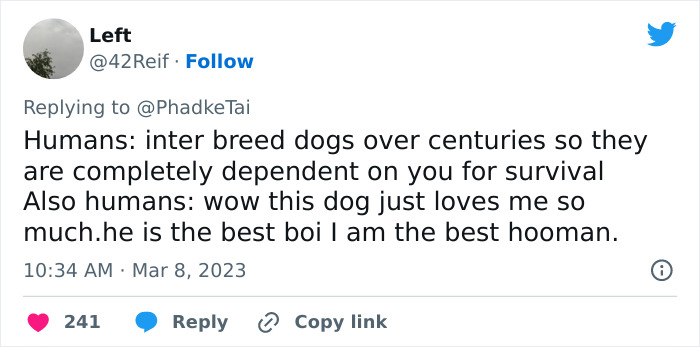
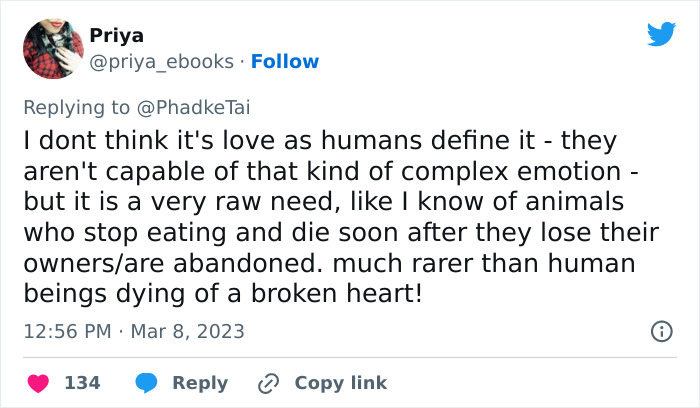
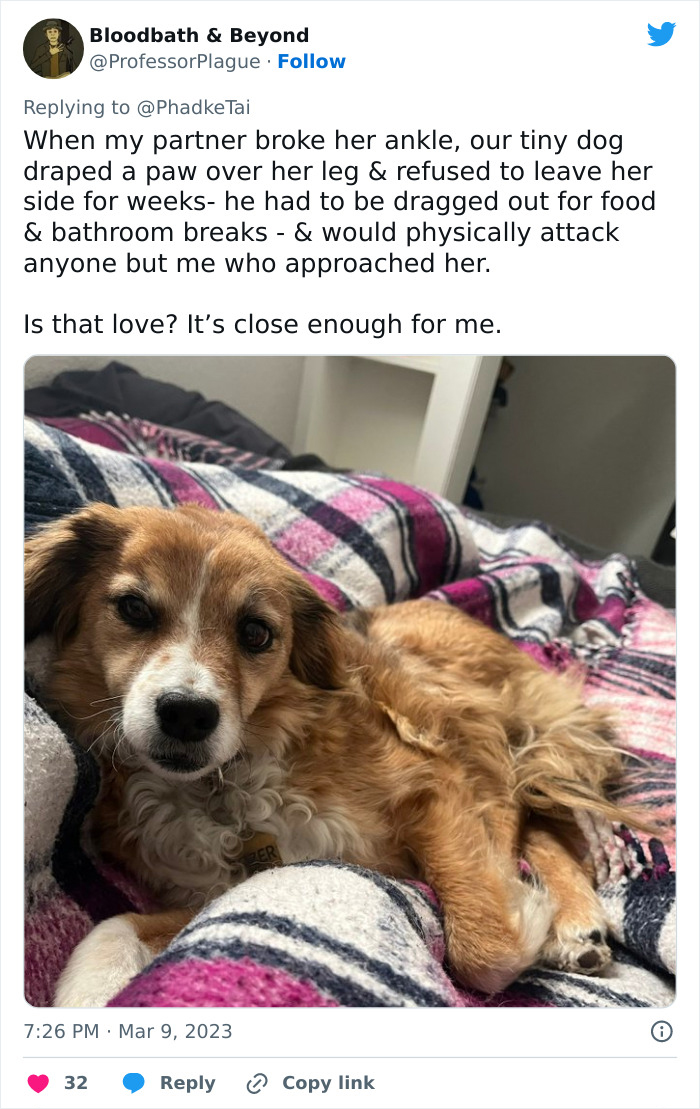
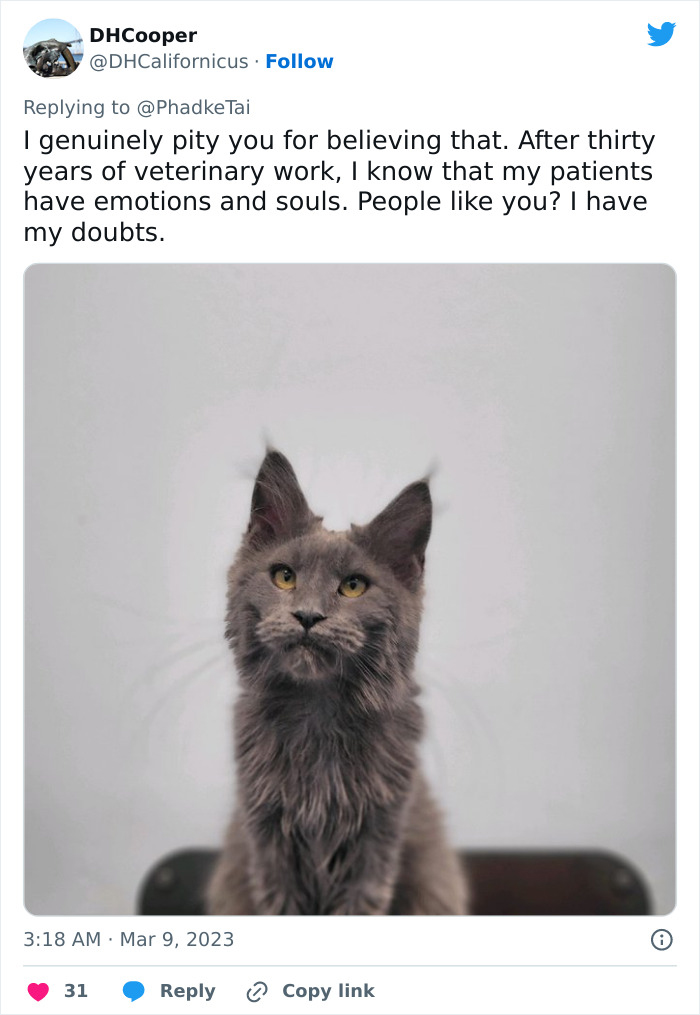
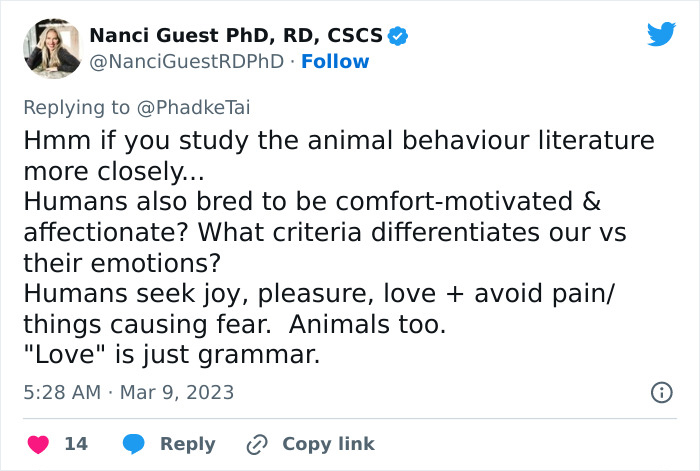
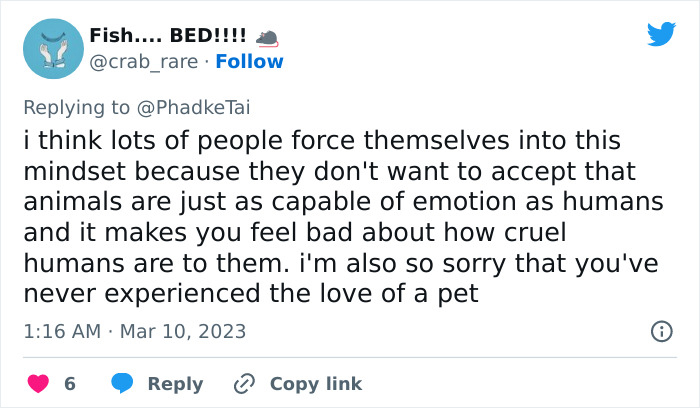
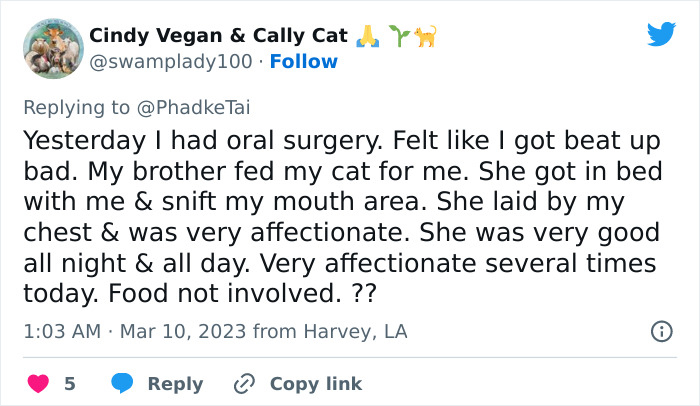
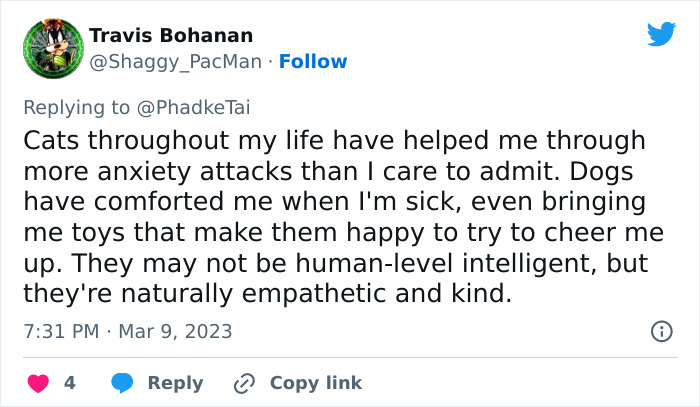
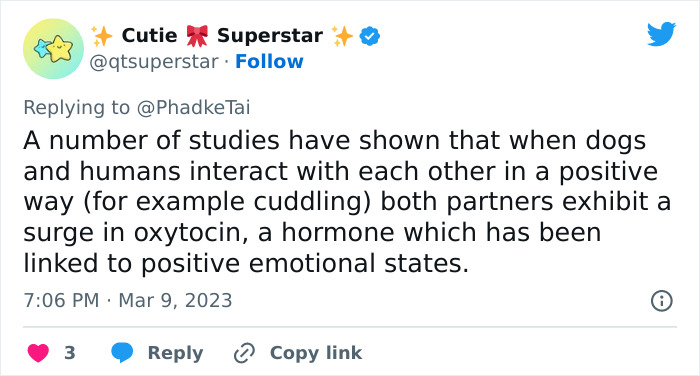
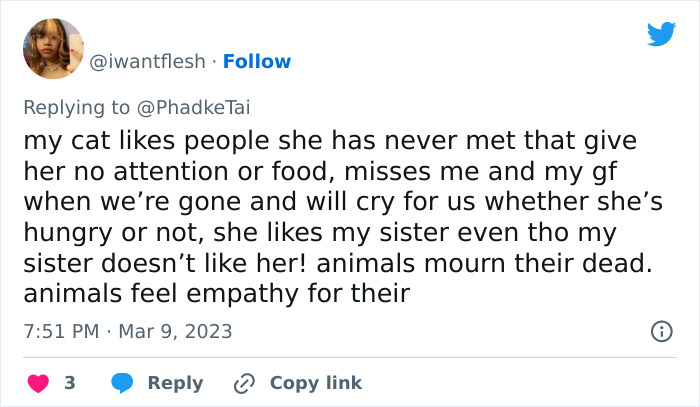
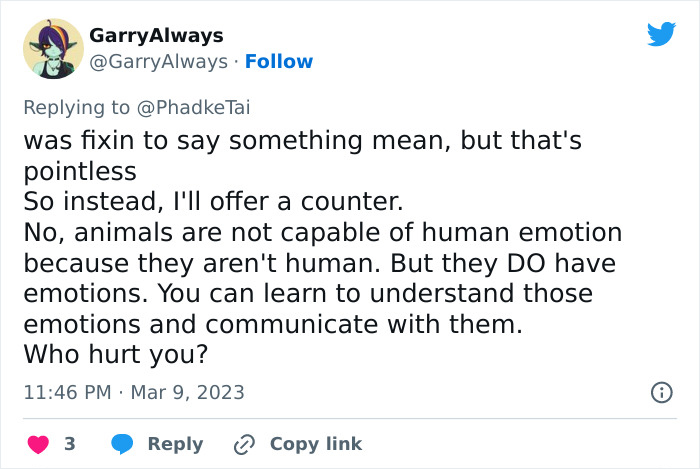
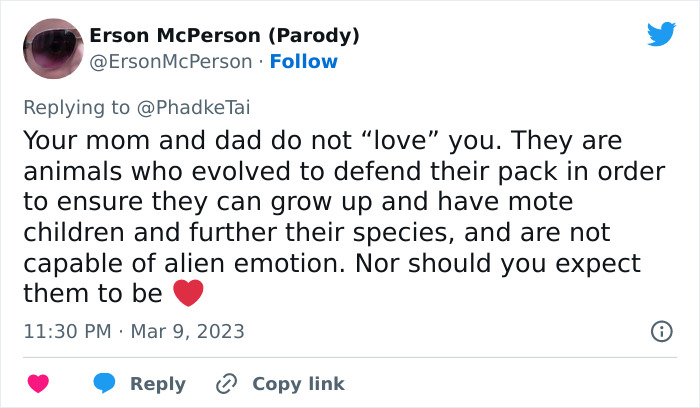













































104
127